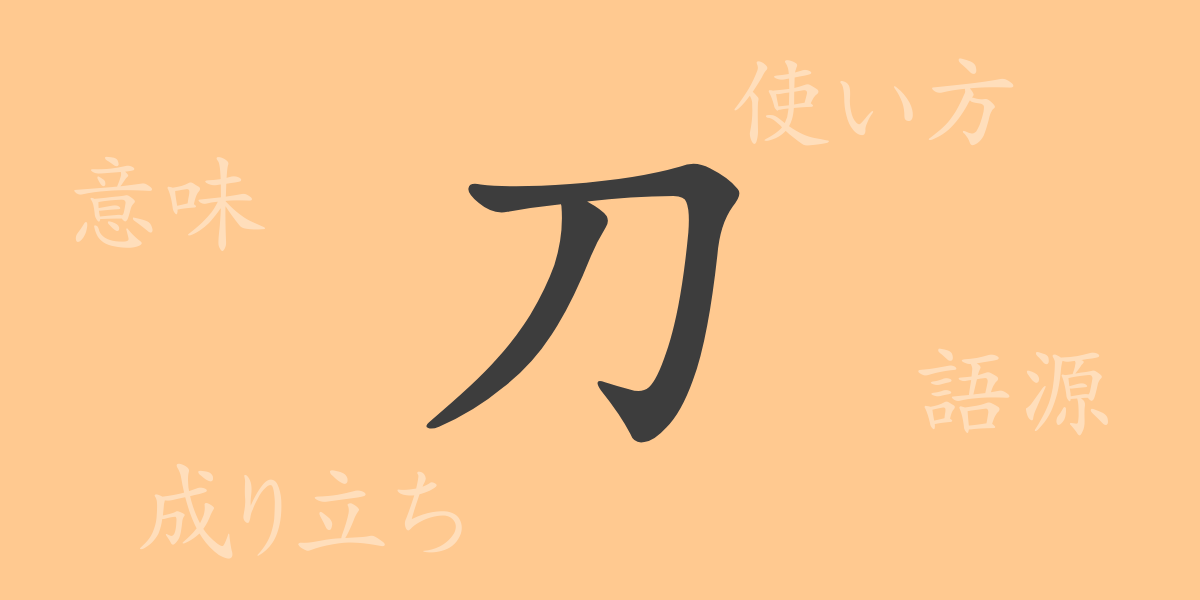In Japanese culture, the sword transcends mere weaponry, embodying the soul of the samurai through its beauty, craftsmanship, and social significance. This article delves into the iconic symbol of the ‘刀(とう)’—the sword—exploring its origins, meanings, and usage, along with phrases and idioms that illustrate its profound impact on Japanese history and culture.
Origins of ‘刀(とう)’
The Kanji ‘刀’ traces back to ancient China, appearing first in bronze inscriptions as a symbol for a straight-edged weapon used for cutting. Initially depicting a slave or prisoner, combined with the ‘刂’ radical indicating knives and swords, it embodies the tool for cutting. Over time, ‘刀’ has evolved to symbolize not just physical cutting tools but also elements of decision and action in Japanese language and culture.
Meaning and Usage of ‘刀(とう)’
In modern Japanese, ‘刀’ primarily refers to blades and swords but extends beyond to metaphorical expressions and idioms, enriching the language with its expressive power. For instance, ‘刀を抜く’ can mean literally drawing a sword or figuratively making a decisive move or determination.
Readings, Stroke Count, and Radical of ‘刀(とう)’
The Kanji ‘刀’ is familiar to any user of Japanese, vital for understanding its application and significance:
- Readings: On’yomi ‘トウ’, Kun’yomi ‘かたな’
- Stroke count: 2
- Radical: 刀部(かたなへん)
Phrases, Idioms, and Proverbs Using ‘刀(とう)’
‘刀’ appears in numerous idioms and proverbs, each reflecting aspects of Japanese ethos:
- 刀を抜く – To take decisive action.
- 刀の錆 – Unused talent or skills.
- 刀にかかる – To be in grave danger.
- 一刀両断 – To make a clear and decisive judgment.
- 刀の下の契り – A vow made at the risk of one’s life.
Conclusion on ‘刀(とう)’
The Kanji ‘刀’ captures the essence of sharpness and decisiveness inherent in its form, used in Japanese language to convey a range of expressions from everyday life to profound commitments. As a historical emblem of the samurai spirit and a living element of modern Japanese discourse, ‘刀’ offers a window into the depth and richness of the Japanese language and culture.

























